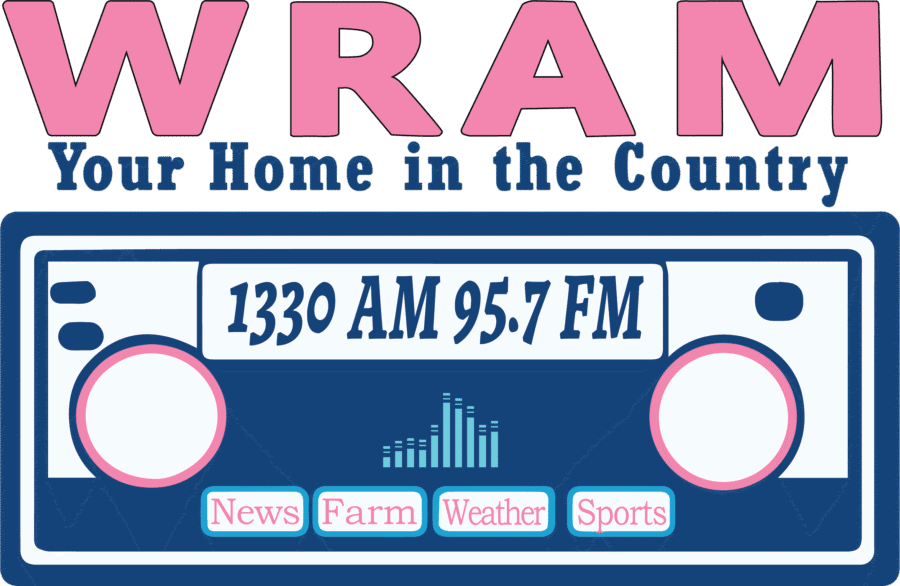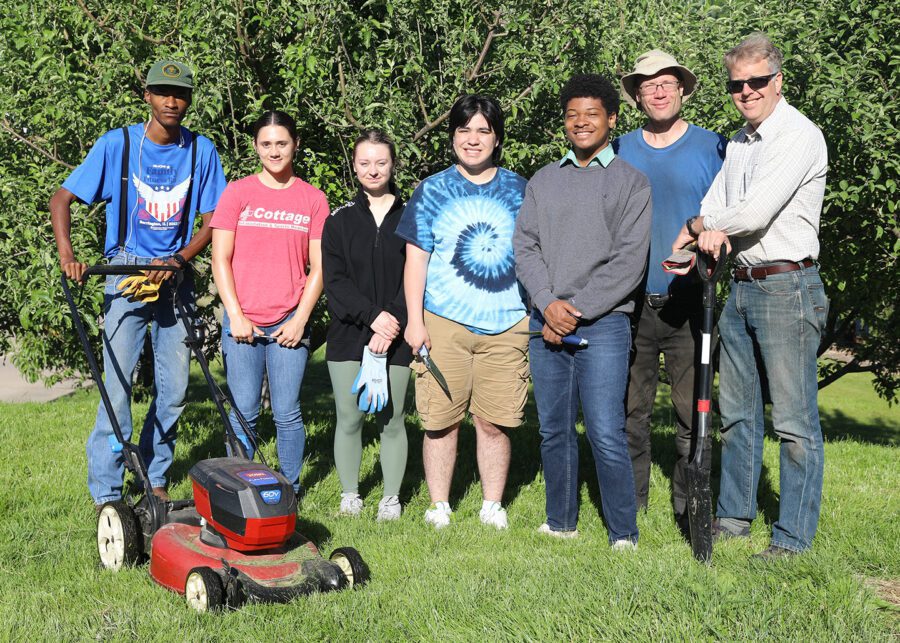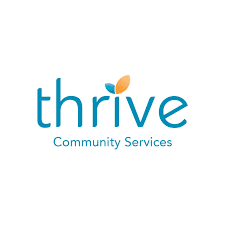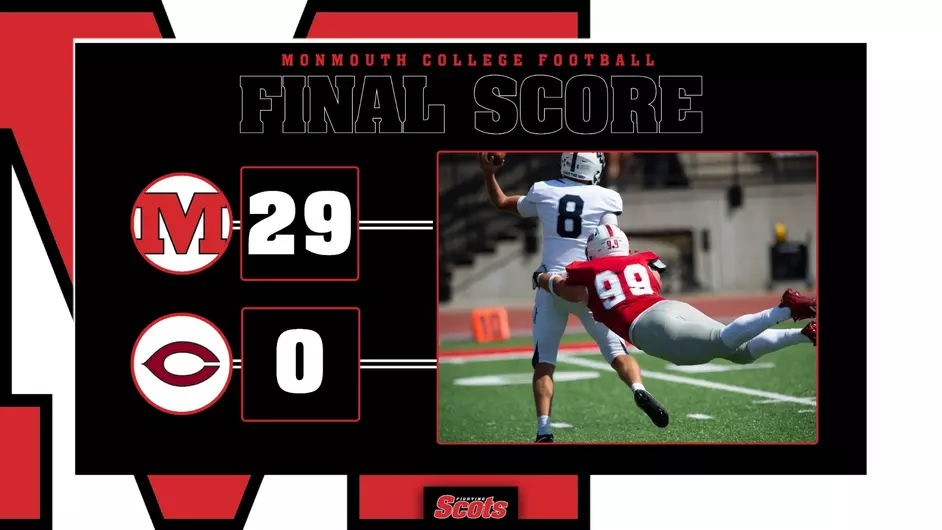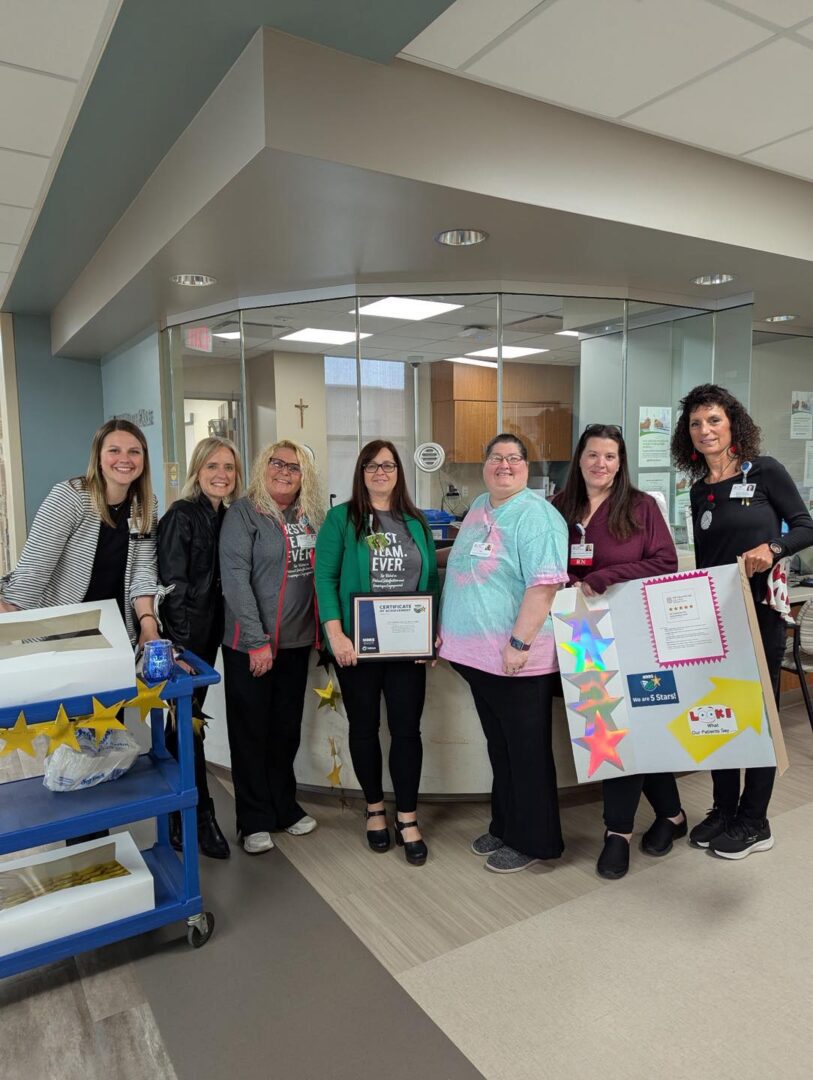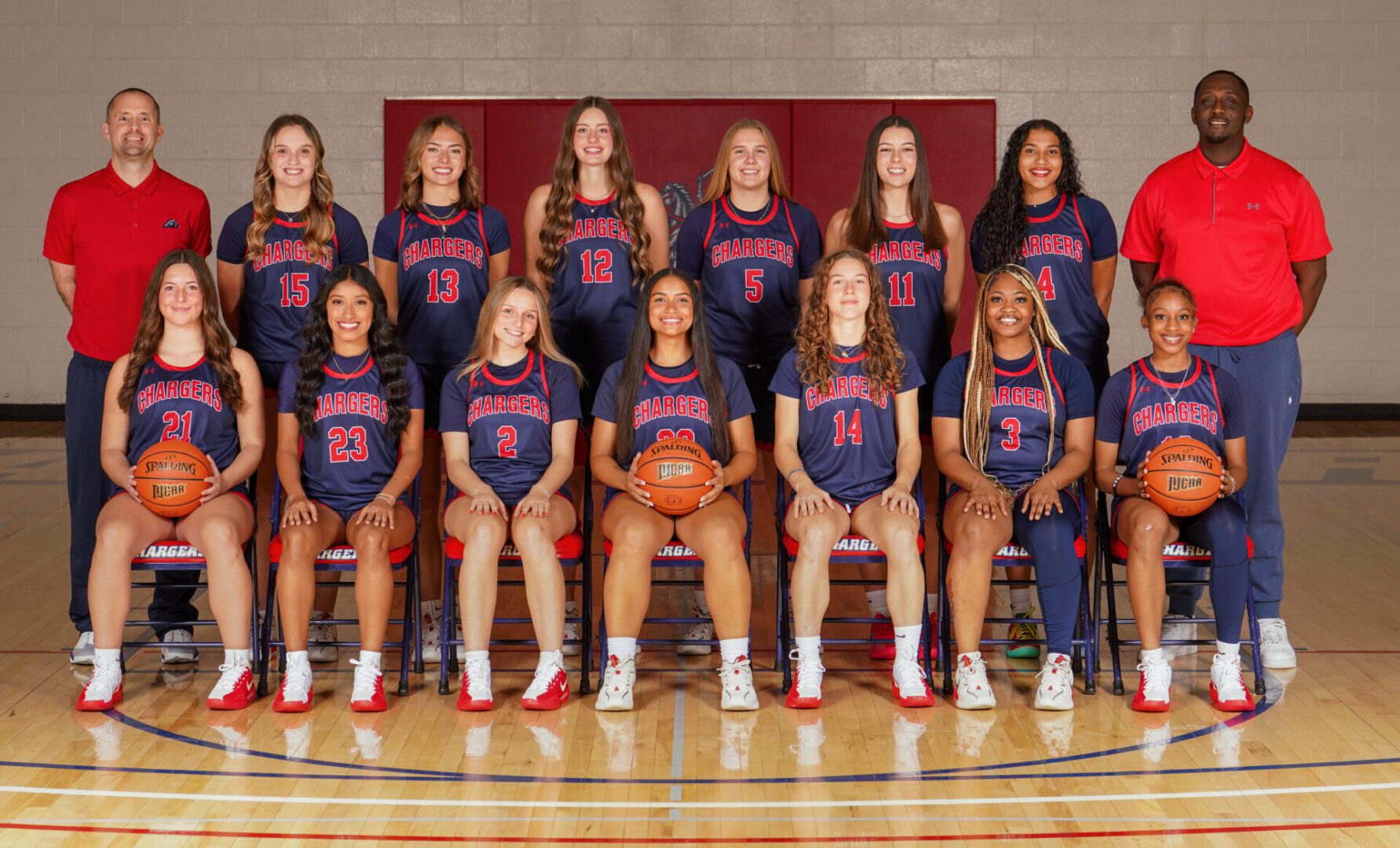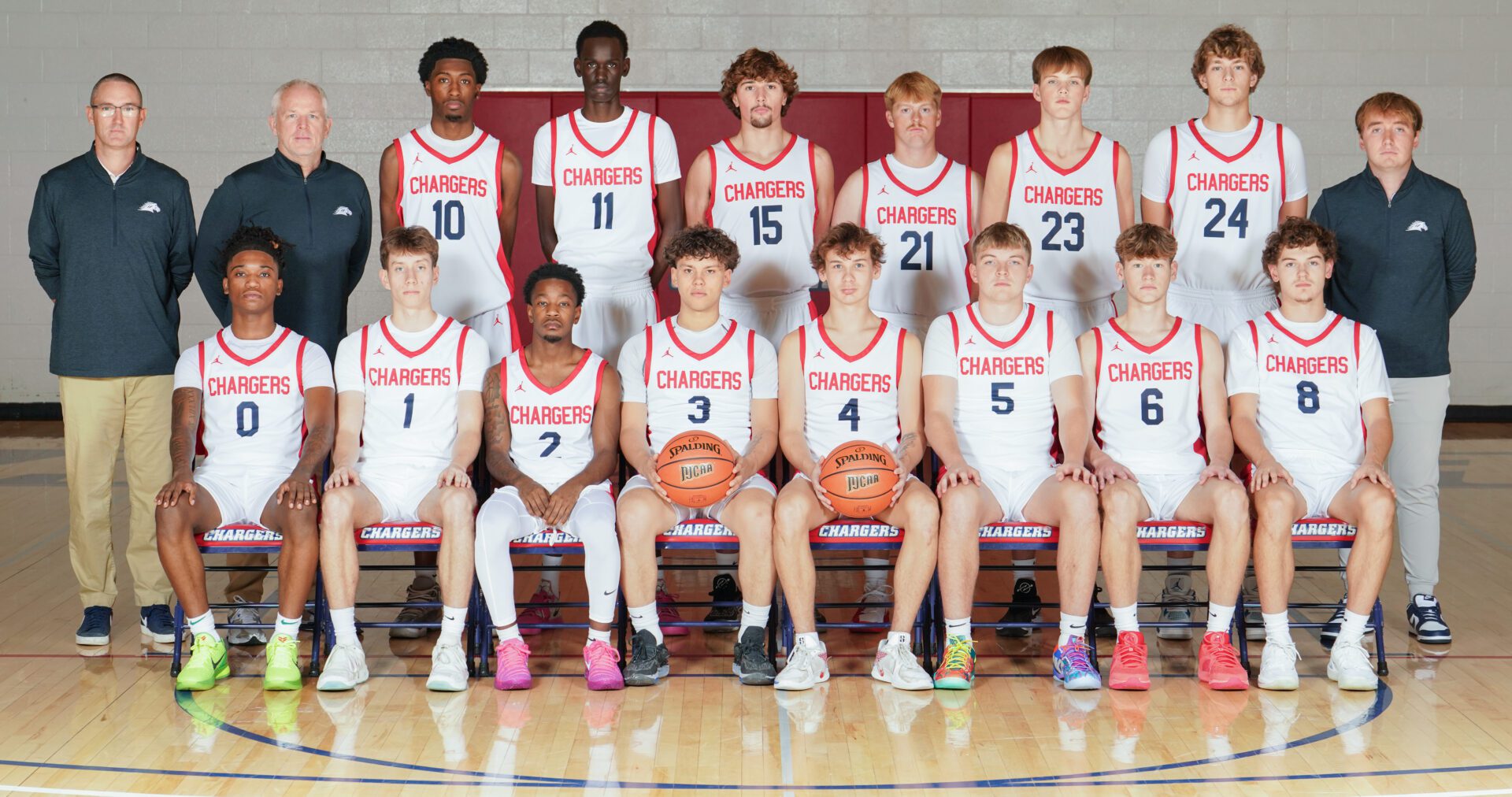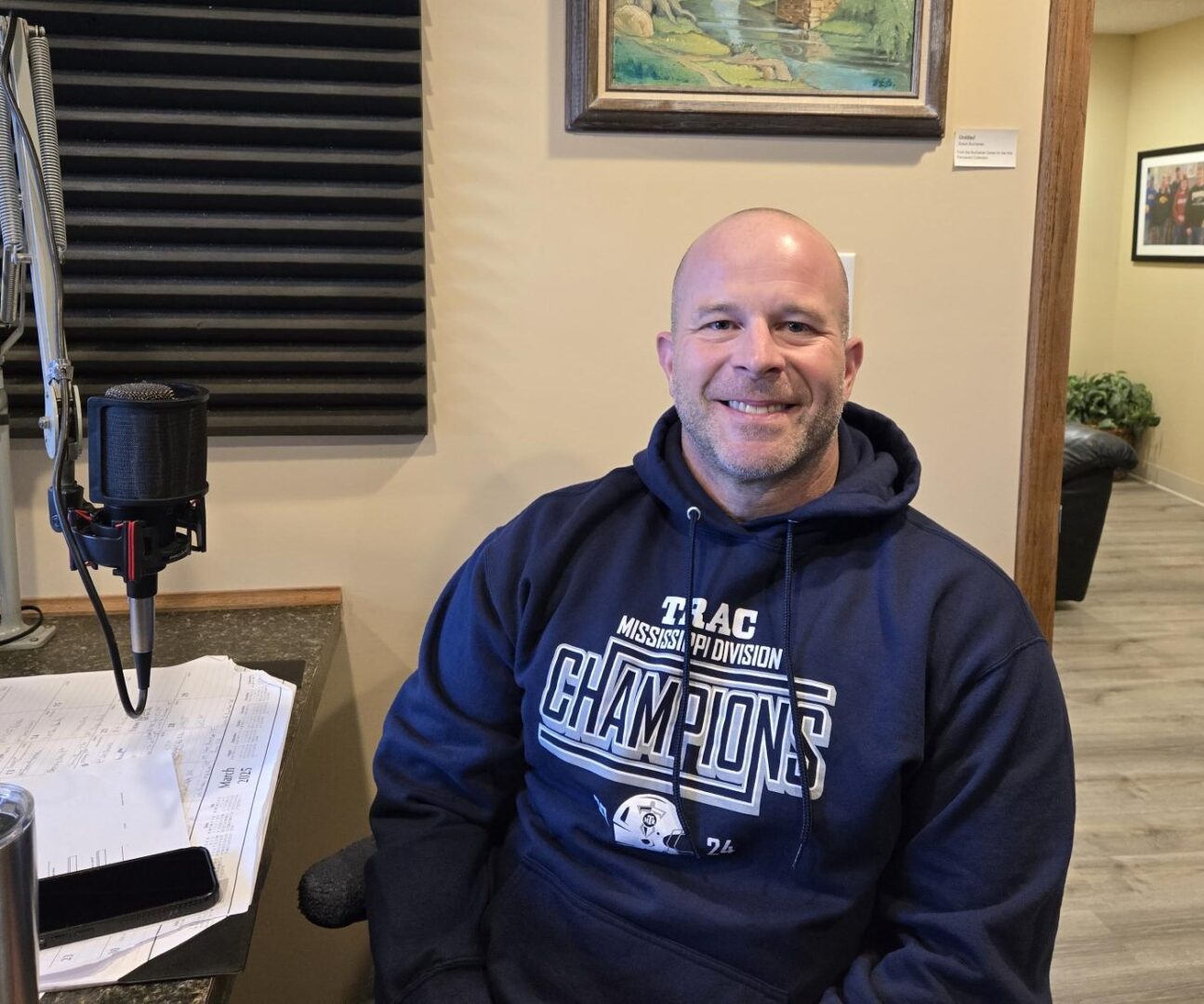News from Monmouth College
MONMOUTH, ILL. (06/06/2024) School may be out for the summer, but that doesn’t mean questions like the following ever go away. Complete the following sentence: The Monmouth College Educational Farm and Garden is a) a laboratory, b) a classroom; c) a canvas; or d) all of the above.
Wise test-takers know that d) is there for a reason, and it’s the correct answer, explained Monmouth biology professor Eric Engstrom and recently retired educational studies professor Craig Vivian.
Although both are well-versed on the entire operations, Engstrom’s focus is more on the practice of sustainable agriculture at the sites, while Vivian is interested in providing learning opportunities for area schoolchildren as part of his department’s emphasis on “place-based learning.”
‘We all eat’
Engstrom has called farm work a “creative” endeavor.
“Our canvas is 2.35 hectares of Muscatine silt loam,” he said.
That’s quite a bit larger than the growing areas most small colleges have – if they have one at all.
Dante Sardelli ’26 of Woodstock, Illinois, is one of the students working on that canvas.
“I’ve never had the chance to be around gardening, so I’m learning so much,” said Sardelli, a double major in political science and history. “It’s not necessary to come from a STEM field. We also have another political science major and students majoring in elementary education and communication.”
And Engstrom says that’s part of the purpose of the Educational Farm and Garden.
“We open it up to everyone here,” he said. “The idea is that it’s not just for the education students to learn about teaching these things. It’s not just for the environmental science students. We all eat. We’re all part of the food system – we’re all engaged with it.”
Everybody eats and, at the farm and garden, everybody works.
“You are doing hard, physical, sometimes uncomfortable work with other people,” said Engstrom. “You’ve got to work it out and get along, function as a team. What we’re trying to do is take what we talk about in the classroom that’s academic and put that into practice. So students can see it happen, or trying to happen.”
The student workers typically have the same reaction as Cally Tate ’26 of Monmouth.
“I decided to do the farm because being outside is really interesting to me,” she said. “I like to be able to work in this kind of environment. This will be a really good experience to see where I can go in the future with my environmental studies major and hopefully take all of the things I learn here to a future job. I’m really glad I decided to work here on the farm and in the garden.”
An agroecology lab
Real science happens every day at the farm, said Engstrom.
“First off, they are laboratories for us,” he said. “We want the farm and garden to teach our students about environmental science, land stewardship, agroecological farming. If you asked me to place a bet on what the future of sustainable agriculture looks like, I would say, ‘I hope it is going to be a combination of agroecology and biotechnology.'”
The latter component isn’t present yet at the College’s farm and garden, but the former is, in spades.
“Agroecology is farming using all the things we’ve learned in the past hundred years about how ecosystems work, how nutrient flow and cycling happens, how competition happens and exploiting the fact that different crops have different niches and that they can work together,” said Engstrom. “The students learn all about that and they learn it firsthand – bringing soil back to the labs on campus, testing it to see what is the quality of the soil, the health of the soil. They’re learning about cover crops, mulching, soil management techniques.”
One of the sustainability lessons the students are learning pertains to the farm’s chickens.
“We’re growing corn, sorghum and sunflower seeds so we can be completely self-sufficient with chicken feed,” said Engstrom. “We’re not there yet, but we’re going to get there.”
No blueberry left behind
Some of the other elements on track to happen soon relate to fruit.
“Blueberries are a major effort every summer,” said Engstrom, who said the first public blueberry pick of the season will be from 4-6 p.m. June 11. “We’re going to make a major push this summer to see if we can get as many blueberries off those bushes and into people’s bellies as we can. We’ve always left a few behind. And we’ve never had an apple pick. We’re hopeful this is the year. It’s looking good out there.”
Those craving a strawberry-rhubarb pie from the farm should also be in luck, eventually.
“Strawberries are going great right now,” said Engstrom. “We planted rhubarb this year and established that. We’re not going to be selling that this year. We’re giving the plants one more season to really get roots deep in the ground. Next year, that’ll be a go.”
It all gives the student crew a sense of accomplishment.
“You can look at all the work you’ve done out here and say, ‘Hey, man, I really did something today,'” said Elijah Perry ’26, a communication studies major from Wheeling, Illinois, who learned about the farm while visiting campus as a prospective student. “I feel like I’m useful here. I seem to have a knack for it.”
‘When is the honey?’
“We’ve added two colonies of bees,” said Engstrom. “Bees are very challenging, in part because of the global problem with varroa mites. But all the people we’ve given our honey to in the past are always coming back and saying, ‘When is the honey? I depend on this. Yours is such good honey.’ So we want to keep that rolling.”
That task falls largely on the shoulders of Vivian, who’s been a beekeeper for the better part of two decades. But he was also one of the driving forces behind a $750,000 federal Community Project Funding grant the College recently secured. A visible outcome of that grant is the farm’s yurt classroom, which was formally dedicated in April.
“The yurt has been a hit,” said Vivian, who’s helped oversee visits by 200 K-3 students since the facility opened. “Students are excited to go to our outdoor learning center. (Kindergarten teacher) Julie Williams told us, ‘Our kids loved this so much, the whole school wants to come out.’ The basic principle with our rural education initiatives is to love nature. That’s hard to do in a classroom. It’s easy to do outside.”
Also part of the crew this summer is Jaydon Wilbon ’25, an elementary education major from Crown Point, Indiana, essentially an out-of-state suburb of Chicago.
“I wanted to be able to bring agricultural science into an elementary school classroom,” he said. “We focus a lot on place-based education at Monmouth, which is learning based off where you are. That’s helpful for students, but they lose the skills of other places. I want to be able to expand their horizons and acquaint them with things they normally wouldn’t have the opportunity to experience.”
Engstrom said the farm and garden are continually providing lessons – on creativity, on science, on life itself.
“I wish I could bring everyone out here, at least for a little bit, and show them that this is here and teach the fundamentals of what this is all about – that you can grow a lot of food, good food, nutritious food,” he said. “And we think it’s possible to do this in a way that generates adequate nutrition and is not degrading – and is even restoring and enriching – the soil at the time we’re doing it.”
And Engstrom said consuming the fruits of their labors is “immensely satisfying” for him and the crew.
“There’s something immensely satisfying about that. I really can’t describe it,” he said. “When you’re eating something that tastes good and it’s making you feel good and you grew that and you harvested that and you took it every step of the way, there’s a little bit of magic in there.”

